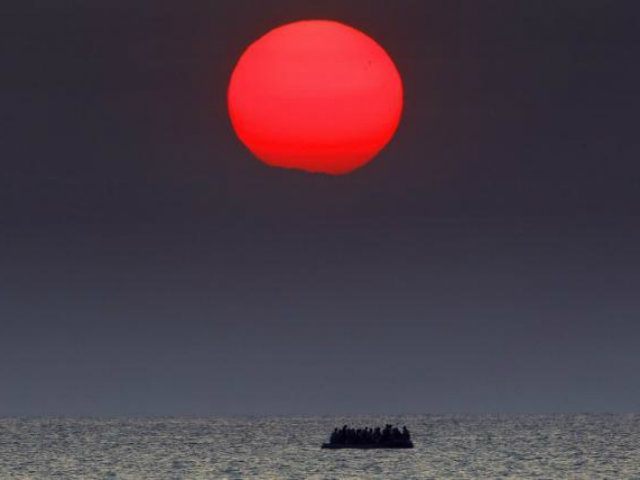BRUSSELS, Feb 25 (Reuters) – NATO allies have agreed to a plan for their ships in the Aegean Sea to help Turkey and Greece counter criminal networks smuggling refugees into Europe, NATO’s chief said on Thursday, overcoming territorial sensitivities between Greece and Turkey.
After late night talks in Brussels, NATO envoys set out how ships sent to the Aegean in early February can work with Turkish and Greek coastguards and the European Union border agency Frontex to rescue refugees at sea and return them to Turkey.
“Greek and Turkish forces will not operate in each other’s territorial waters and airspace,” NATO Secretary-General Jens Stoltenberg said in a statement following.
Relations between Greece and Turkey have traditionally been tense and since the Feb. 11 deal by NATO defence ministers to deploy ships to the Aegean, Greece’s defence minister has accused Turkey of trying to undermine the deal.
NATO diplomats said one of the issues was where Greek and Turkish ships should patrol and whether that would set a precedent for claims over disputed territorial waters.
Stoltenberg said other NATO vessels will be able to sail in the territorial waters of Greece and Turkey.
German Chancellor Angela Merkel and Turkish Prime Minister Ahmet Davutoglu sought the NATO mission to help tackle Europe’s worst migration crisis since World War Two. More than a million asylum-seekers arrived last year.
The European Union is relying on Turkey to help stem the flows of Syrians fleeing civil war, giving Ankara 3 billion euros to set up camps and help take in more refugees, although progress in implementing the deal has been slow.
Germany hopes that unlike the EU’s mission off the Italian coast, which brings rescued migrants to Europe’s shores, NATO will return migrants to Turkey even if they are picked up in Greek waters, effectively sealing the border.
“In case of rescue of persons coming via Turkey, they will be taken back to Turkey,” Stoltenberg said.

COMMENTS
Please let us know if you're having issues with commenting.